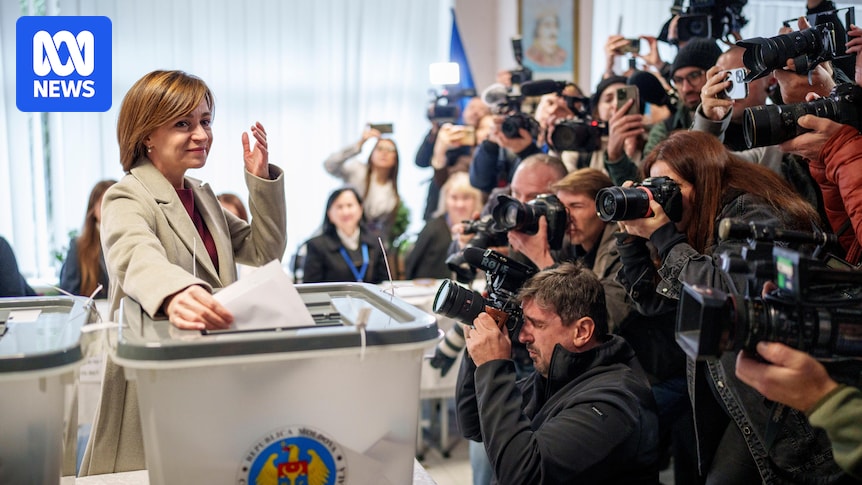Moldovans have voted by a razor-thin majority in favour of securing the country’s path toward European Union (EU) membership, electoral data shows, after President Maia Sandu accused “criminal groups” of trying to undermine the vote.
With fewer than 0.6 of the ballots still to be counted, a very slim majority of 50.39 per cent voted Yes in Sunday’s referendum to insert a clause in Moldova’s constitution that would define EU membership as a goal.
President Sandu, who is also seeking re-election, wants her small country nestled between EU member Romania and Ukraine to join the bloc by 2030.
On Monday, she reiterated claims that unprecedented voter fraud and foreign interference had undermined the votes, calling it a “vile attack” on Moldova’s sovereignty.
“Unfortunately, the justice system failed to do enough to prevent vote rigging and corruption,” Ms Sandu told a news conference.
“Here, too, we must draw a line, correct what went wrong, and learn the lesson. We heard you: we know we must do more to fight corruption.”
The EU referendum and presidential election are seen as a test of whether the former Soviet republic can escape Moscow’s sphere once and for all. (AP Photo: Vadim Ghirda)
Moldovan authorities claim that Moscow has intensified a “hybrid war” campaign to destabilise the country and derail its EU path.
The allegations include funding pro-Moscow opposition groups, spreading disinformation, meddling in local elections and backing a major vote-buying scheme.
In Brussels, the European Union’s executive branch, the European Commission, said that its services had also noted Russian interference in Moldova, and it underlined its continued support for Moldova on its EU accession path.
“This vote took place under unprecedented interference and intimidation by Russia and its proxies, aiming to destabilise the democratic processes in the Republic of Moldova,” spokesperson Peter Stano said.
Mr Stano told reporters that allegations of vote buying, the bussing of voters and disinformation were only the most recent forms of Russian interference, and that attempts to undermine Moldova and its support for the EU have been going on for months.
Russia denies the allegations of meddling. On Monday, the Kremlin branded Moldova’s votes as “unfree”.
Moldova says Russia illegally printed ballots for election in separatist region
In the presidential race that was held at the same time, Ms Sandu won the first round with 42 per cent of the vote in a field of 11, but failed to win an outright majority.
She will face Alexandr Stoianoglo, a Russia-friendly former prosecutor-general who outperformed polls with around 26 per cent of the vote, in a run-off on November 3.
By the time polling stations closed at 9pm on Sunday (local time), more than 1.5 million voters — about 51 per cent of eligible voters — had cast ballots, according to the Central Electoral Commission.
The referendum and presidential election are seen as a test of whether the former Soviet republic can escape Moscow’s sphere once and for all.
Before the vote, Moldovan authorities said Ilan Shor, a fugitive tycoon living in Russia, had made concerted attempts to meddle in the referendum and election.
The authorities said they had taken down online resources that hosted disinformation and had uncovered a program in Russia to train Moldovans to take part in mass unrest.
ABC/wires
